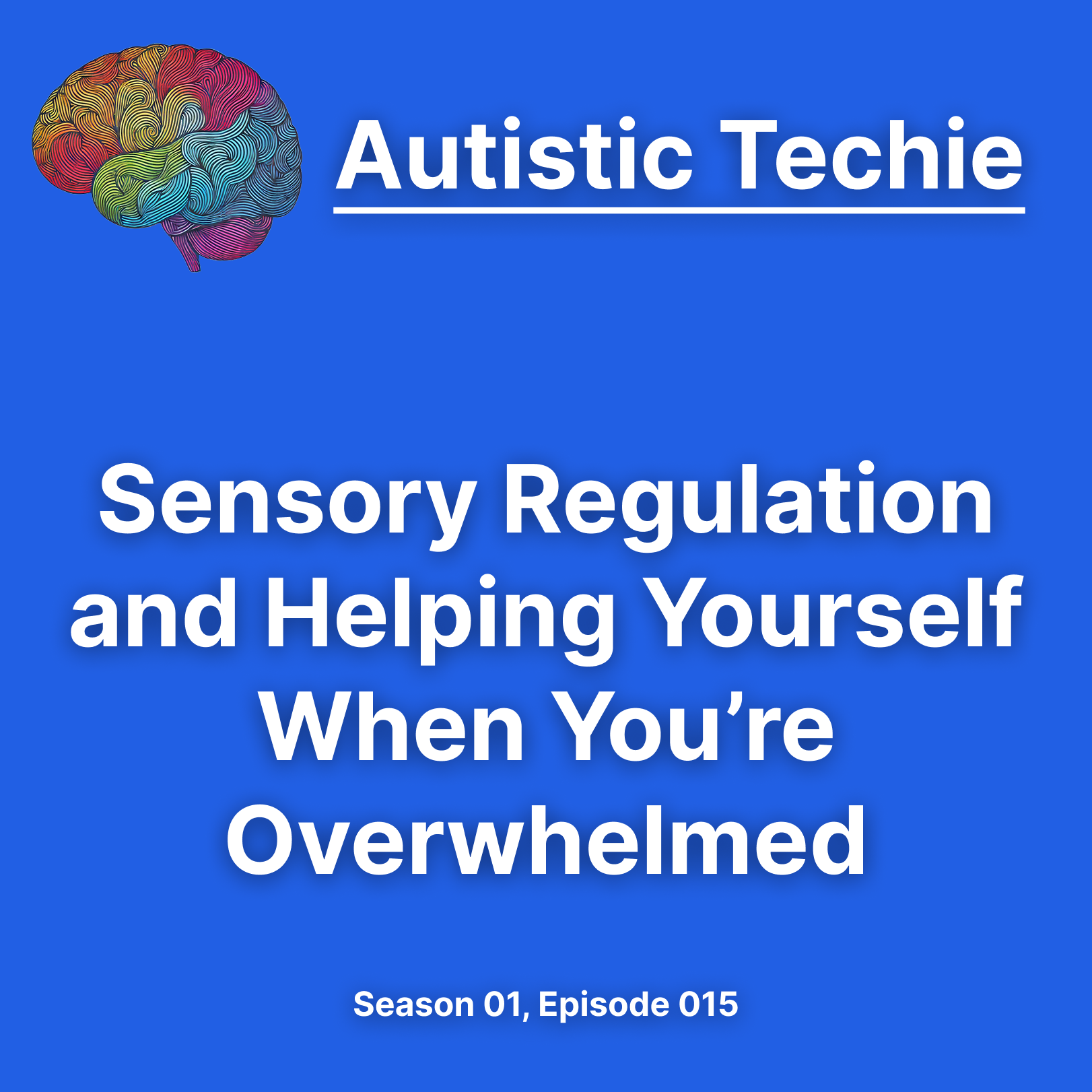
• 15 min
Sensory Regulation and Helping Yourself When You’re Overwhelmed
Autistic Techie
Play
Summary
Neurodivergent people are no strangers to sensory dysregulation - This is a fancy term which, in short, means "I am not able to regulate your emotions and/or my sensory environment." Your sensory struggles can and often do impact your emotions and vice versa. When you're in a tough environment and find yourself in an overwhelming situation, what can you do? Let's dive into these feelings together, talk about some strategies to help you in the workplace, and unpack some ways you can think about dysregulation when it comes to your needs.
Takeaways
Feeling overwhelmed can indicate emotional dysregulation.
Self-regulation strategies vary for each individual.
Modifying the environment can help manage sensory overload.
Fidget devices can aid in maintaining focus and calmness.
Communication with peers about needs is crucial for support.
Identifying specific sensory triggers is essential for self-management.
Workplace adjustments can enhance productivity for neurodivergent individuals.
Creating a supportive environment benefits everyone in the workplace.
Understanding individual differences in sensory processing is key.
Self-advocacy is important for achieving a conducive work environment.
Chapters
00:00 Navigating Overwhelm in Social Settings
03:03 Strategies for Managing Sensory Overload
06:07 Creating a Supportive Work Environment
08:49 The Role of Communication in Self-Regulation
11:46 Fidget Devices and Personal Regulation Techniques
14:45 Understanding Individual Needs for Self-Regulation
Neurodivergent people are no strangers to sensory dysregulation - This is a fancy term which, in short, means "I am not able to regulate your emotions and/or my sensory environment." Your sensory struggles can and often do impact your emotions and vice versa. When you're in a tough environment and find yourself in an overwhelming situation, what can you do? Let's dive into these feelings together, talk about some strategies to help you in the workplace, and unpack some ways you can think about dysregulation when it comes to your needs.
Takeaways
Feeling overwhelmed can indicate emotional dysregulation.
Self-regulation strategies vary for each individual.
Modifying the environment can help manage sensory overload.
Fidget devices can aid in maintaining focus and calmness.
Communication with peers about needs is crucial for support.
Identifying specific sensory triggers is essential for self-management.
Workplace adjustments can enhance productivity for neurodivergent individuals.
Creating a supportive environment benefits everyone in the workplace.
Understanding individual differences in sensory processing is key.
Self-advocacy is important for achieving a conducive work environment.
Chapters
00:00 Navigating Overwhelm in Social Settings
03:03 Strategies for Managing Sensory Overload
06:07 Creating a Supportive Work Environment
08:49 The Role of Communication in Self-Regulation
11:46 Fidget Devices and Personal Regulation Techniques
14:45 Understanding Individual Needs for Self-Regulation